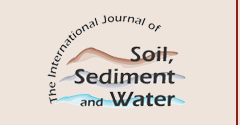Article Title
Municipal Solid Waste Used as Bioethanol Sources and its Related Environmental Impacts
Abstract
An investigation into the possibility of replacing the conventional biomass with biodegradable municipal solid waste, which provides an alternative solution for preventing the biodegradable fraction of municipal solid waste (BMSW) going into landfill required by EU Landfill Directives (1999/31/EC) was carried out. However, as every type of energy have some advantages as well as disadvantages. The use of BMSW as biomass sources for the production of bio-ethanol was investigated. The experimental results have shown that more than 90% of the cellulose from the waste can be converted to glucose which can be easily fermented to ethanol production. The potential impacts on related environmental issues, such as sustainable waste management, climate change, water issues, land use and biodiversity, are discussed. Sustainable waste management solutions are also discussed under different environmental, economic, and social scenarios.
Recommended Citation
Li, Aiduan and Khraisheh, Majeda
(2008)
"Municipal Solid Waste Used as Bioethanol Sources and its Related Environmental Impacts,"
International Journal of Soil, Sediment and Water: Vol. 1:
Iss.
1, Article 5.
Available at:
https://scholarworks.umass.edu/intljssw/vol1/iss1/5
